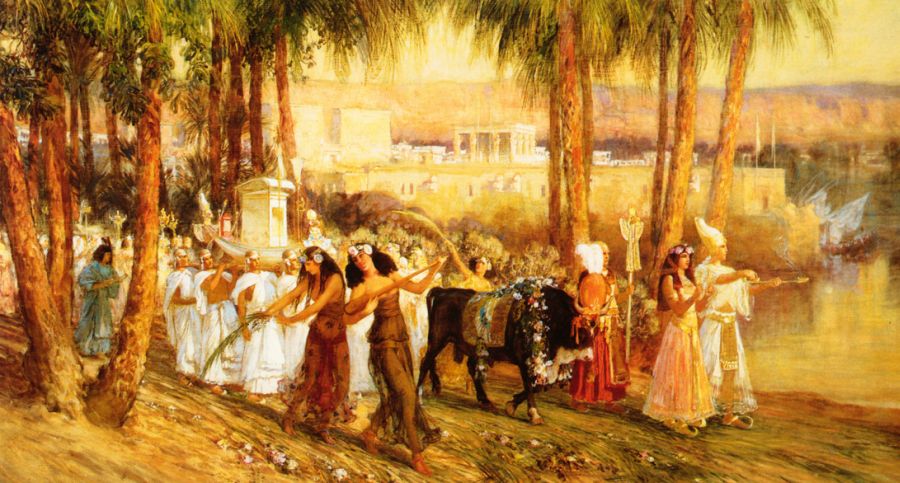 |
| What is this about some other girl? |
[29] Sic immensum procedit in dies opinio, sic insulas iam proxumas et terrae plusculum provinciasque plurimas fama porrecta pervagatur. iam multi mortalium longis itineribus atque altissimis maris meatibus ad saeculi specimen gloriosum confluebant. Paphon nemo, Cnidon nemo ac ne ipsa quidem Cythera ad conspectum deae Veneris navigabant; sacra praetereuntur, templa deformantur, pulvinaria proteruntur, caerimoniae negleguntur; incoronata simulacra et arae viduae frigido cinere foedatae. puellae supplicatur et in humanis vultibus deae tantae numina placantur, et in matutino progressu virginis victimis et epulis Veneris absentis nomen propitiatur, iamque per plateas commeantem populi frequenter floribus sertis et solutis adprecantur.
Thus this belief grew to enormous proportions day by day, and thus the story stretched out and spread out immediately to the nearby islands and then somewhat to the provinces on the mainland. Now many of the mortal men were flowing together on long journeys and through deep-see voyages to the glorious Face of the Century.
No one was sailing to Paphos, no one to Cnidos, and not even to Cythera itself to see the goddess; her sacred rites were cast aside, her temples left to ruin, her couches crushed underfoot, and her ceremonies neglected. Her statues were ungarlanded and her altars shamefully bereft with frigid ashes of fires gone out.
Prayers were directed to the girl, and in her human face the powers of the whole goddess were appeased. At the appearance of the maiden each morning, with feasts and sacrifices, the name of the absent Venus was celebrated. And now the people beseeched the young girl with garlands and scattered flowers whenever she walked through the streets.





